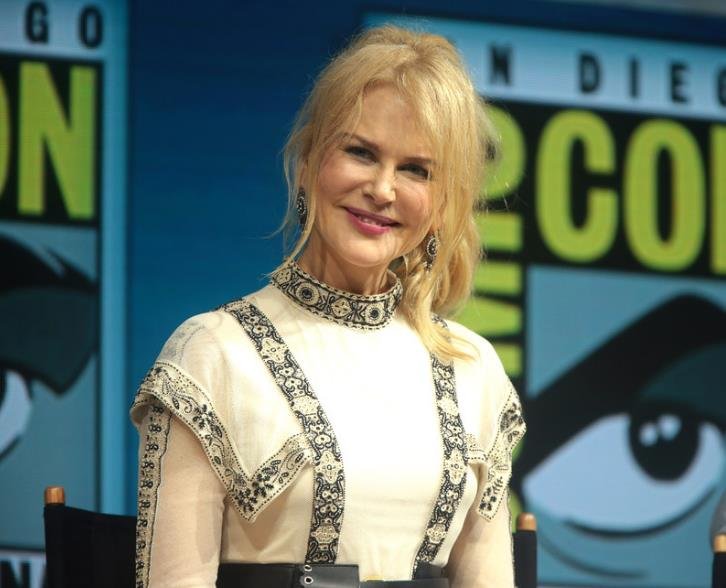Hollywood star Nicole Kidman has openly expressed her desire to work with Martin Scorsese, highlighting her wish for him to create films centered around female protagonists.
During her acceptance speech at the AFI Life Achievement Award, Nicole Kidman took the opportunity to list her dream directors. Among them was Martin Scorsese, with a condition: she hopes he “does a film with women.”
Kidman’s remark subtly points to Scorsese’s history of predominantly male-centric films. Titles like “Goodfellas,” “The Irishman,” and “The Wolf of Wall Street” showcase his focus on male narratives and characters. This critique resonates within an industry increasingly pushing for diverse storytelling.
“I’ve always said I want to work with Scorsese, if he does a film with women,” Kidman told the outlet. Her comment has sparked conversations about gender representation in mainstream cinema and the responsibilities of influential directors to diversify their portfolios.
The Landscape of Gender Representation in Hollywood
Nicole Kidman’s comments come at a time when the film industry is under scrutiny for its gender biases. Female directors and protagonists are still fighting for equal representation in a field long dominated by men.
Industry Statistics
| Aspect | Male Representation | Female Representation |
|---|---|---|
| Directors | 75% | 25% |
| Leading Roles in Top Films | 80% | 20% |
| Box Office Success | 70% | 30% |
These numbers highlight the significant disparity in both leadership and on-screen presence between genders. Kidman’s call for Scorsese to include women in his projects aligns with a broader movement advocating for equality and diversity.

Kidman’s Vision: More Stories for Women
Nicole Kidman isn’t alone in her aspirations for a more inclusive film industry. She also named Kathryn Bigelow, Spike Jonze, Paul Thomas Anderson, and Michael Haneke as directors she’d love to collaborate with, emphasizing her interest in working with those who support diverse narratives.
The Importance of Diverse Storytelling
Diverse storytelling not only enriches the cinematic landscape but also reflects the varied experiences of audiences worldwide. Films with strong female leads and directors can inspire and empower women, offering new perspectives and challenging existing stereotypes.
- Empowerment: Stories centered around women can highlight their strengths, struggles, and triumphs, providing role models for young audiences.
- Innovation: Diverse voices bring fresh ideas and innovative storytelling techniques, pushing the boundaries of traditional cinema.
- Audience Engagement: Films that represent a broader spectrum of experiences can attract a wider audience, enhancing box office success and critical acclaim.
The Response from Scorsese and the Industry
Martin Scorsese, a revered figure in filmmaking, has been acknowledged for his masterful storytelling and deep character explorations. However, his filmography has often been critiqued for its lack of strong female characters and narratives.
Scorsese’s Perspective
While Scorsese hasn’t publicly addressed Kidman’s comments directly, his recent works suggest a willingness to explore different genres and themes. Directors of his stature may take such critiques seriously, potentially inspiring a shift towards more inclusive storytelling.
Industry Reactions
The film industry has seen a gradual shift towards supporting female-led projects, with increased funding and opportunities for women directors and writers. Kidman’s remarks reinforce the importance of this movement, encouraging established directors like Scorsese to broaden their creative horizons.
The Broader Impact on Hollywood
Nicole Kidman’s advocacy for gender diversity in film extends beyond her desire to work with specific directors. It reflects a growing demand for systemic change within Hollywood to ensure equal opportunities for all.
Long-Term Benefits of Diversity
- Cultural Relevance: Diverse films better reflect the global audience, making stories more relatable and culturally relevant.
- Economic Growth: Inclusive films can tap into new markets and demographics, driving economic growth within the industry.
- Social Change: Media representation plays a crucial role in shaping societal norms and values, promoting acceptance and understanding across different groups.
Challenges Ahead
Despite progress, significant challenges remain in achieving true gender parity in Hollywood. Resistance to change, entrenched biases, and structural barriers continue to impede the advancement of women in the industry. However, voices like Kidman’s help to highlight these issues, paving the way for future improvements.
Looking Forward: A Call to Action
Nicole Kidman’s comments serve as a powerful reminder of the ongoing need for diversity in filmmaking. By urging directors like Scorsese to embrace female-centric stories, she advocates for a more balanced and representative cinematic world.
Steps Towards Inclusivity
- Support Female Directors: Encouraging studios and production companies to invest in projects led by women.
- Mentorship Programs: Establishing mentorship initiatives to guide and support aspiring female filmmakers.
- Policy Changes: Implementing industry-wide policies that promote equal opportunities and combat discrimination.
As the conversation around gender representation continues to evolve, influential figures like Nicole Kidman play a crucial role in driving meaningful change within Hollywood.








